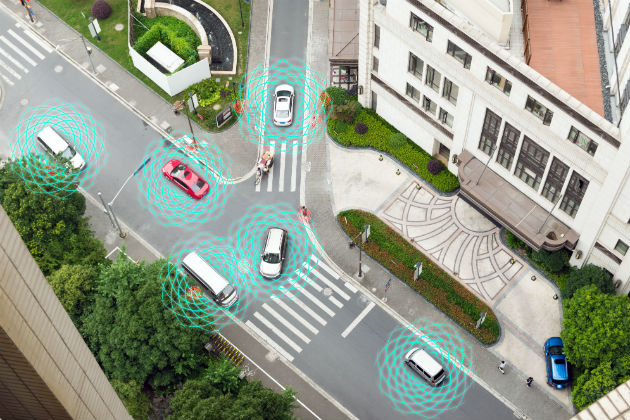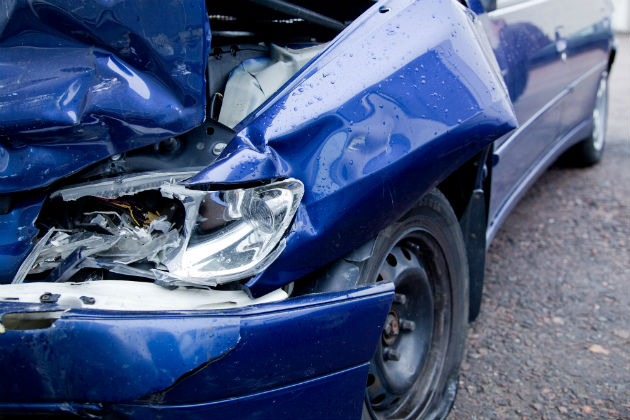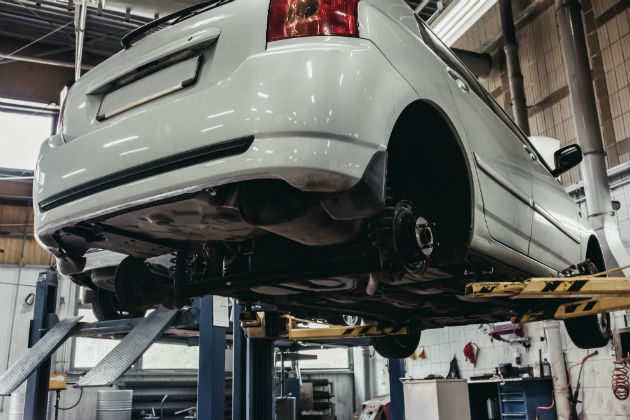6 December, 2017 By: Vanessa Pogorelic
Did you know that every time you drive, your car could be recording what you're doing behind the wheel?
Our increasingly computerised cars have actually been recording how we drive for some time. Any car model from the 1990s onwards is likely to have this ability.
However most of us are unaware this data is being captured, or how it’s used. No one even knows who actually owns the data you generate when driving.
Given we ‘create’ data in plenty of other places in our lives as well as our cars, such as through our smart phones, the lack of clarity about data ownership has become an important national conversation.

Back in 2016, the Australian Productivity Commission drafted a report recommending a “major overhaul” of how we treat data capture, stating individuals have the right to control their data.
Productivity Commission Chair, Peter Harris, noted that most consumers would be surprised that, as individuals, they currently have no rights to own the data that is collected about them.
“Data is increasingly an asset, and when you create an asset you should have the ability to use it, or not, at your choice,” says Harris.
How the connected car collects data
Modern cars typically contain about 2000 components, 30,000 parts and a staggering amount of software.
To give you an idea of just how much software, a 2010 Boeing 787 Dreamliner aircraft requires about 6.5 million lines of software code to function, while the average 2010 model Ford passenger car needs 10 million lines of code to keep it moving, according to the Institute of Electrical and Electronics Engineers (IEEE).
Since the 1990s cars have carried an event data recorder (EDR), which is a bit like a black box in an aircraft, that collects information about how the car systems are working.
EDRs record information from the increasingly sophisticated sensors in cars like vehicle speed, braking and even whether a seatbelt is being used.

Jeff Kasparian, Programs Director at the mobility research organisation iMove CRC, says that information held at the level of the car is nothing new.
“We’ve all got the ‘check engine’ lights for example and we’ve had this in our cars for many years, where a repairer can plug in and see what the problem is.”
What is different is the increased complexity and detail of the information being collected, and that it can now be transmitted out to be used by another party.
Today, the technologies that are making our cars 'connected' - called telematics - are giving them the ability to transmit and receive data from car to car, from car to road infrastructure, such as traffic signalling systems, and even from the car to a third party like the vehicle manufacturer.
Enjoying this article?
Sign up to our monthly enews
There are advantages in sharing your car's data. Emergency services could be immediately alerted in the event of a crash, traffic controllers can get early warnings about congestion and change traffic signalling, and diagnostic reports generated by your car can show maintenance and repairs that it may need.The information collected can also create views of travel demands and patterns that can inform future infrastructure planning.
The concern is that there is currently no oversight or regulation around what, when, and how car data is being used or shared. A recent survey around autonomous vehicles conducted by RAC found that almost two-thirds of West Australians have concerns about data privacy, including who owns the information these vehicles collect about the trips they are making.
“We don’t know what manufacturers do or don’t collect. And we may never know,” says Kasparian.
As well as privacy, there are commercial questions around the data.
In Europe, only car manufacturers can access their vehicles’ data. That means anyone other than a manufacturer who services the car must pay to get information about the car’s performance for servicing and repairs.
If this situation was replicated in Australia, the concern is that car owners would have no choice but to take their car to a branded repairer for servicing, limiting the market and potentially impacting the cost of servicing and repairs.

Future-proofing your privacy
iMove’s Jeff Kasparian believes the gains from connected cars outweigh the risks. He says that while transparency about data collection is important, consumers will become accustomed to sharing data when it’s for their benefit.
“It’s a bit like credit cards and online banking,” says Kasparian.
“These are things we’ve gone through cycles with over the years about whether people are comfortable sharing information.
“With our smart phones and even in our cars right now, we already use location-based services, such as Google Maps. We give information to Google about our location in order to use these services.
“The benefits of sharing car data include a potential massive reduction in road fatalities and road trauma and better utilisation of our existing road and traffic systems without having to spend billions more on roads,” says Kasparian.
However, the Australian Automobile Association (AAA) says that while connected cars offer safety benefits, our laws need to catch up with the fast evolving car technology.
They are calling for consumers to have greater control of their data, to be made aware of their car’s data collection capabilities, and to be able to opt out of third party data collection.
“Governments around the world are wrestling with how to balance innovation and consumer protection,” says AAA’s Chief Executive Michael Bradley.
“It’s important Australians are told what information car makers collect about them and what it’s used for before this technology becomes widespread in Australia.”
Enjoy this story? Get more of the same delivered to your inbox. Sign up to For the Better eNews.
Our groundbreaking RAC Intellibus™ trial is helping us understand how driverless vehicle technology might work on WA roads in the future.
No matter how you use your car....
You want to be covered with insurance you can trust. RAC Car Insurance offers simple and reliable car insurance and a local claims team to get your sorted.This product is issued by RAC Insurance Pty Ltd. Benefits are subject to policy conditions and PED Guide. Before you make a decision, please check the PDS and TMD to see if the policy is right for you. Limits and exclusions apply.
